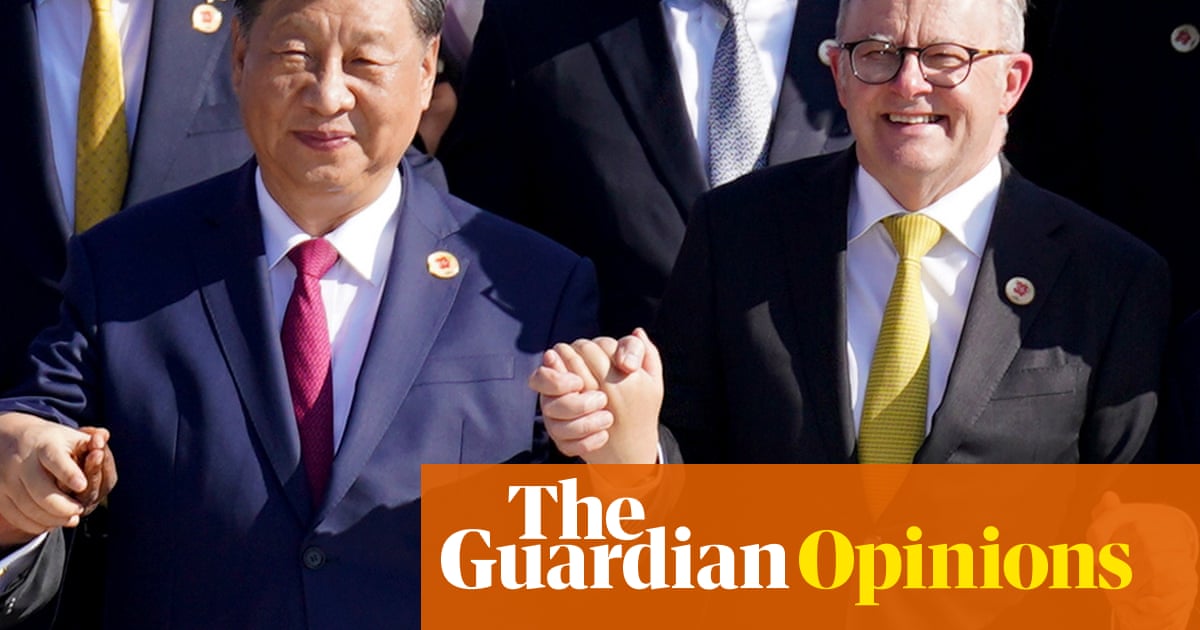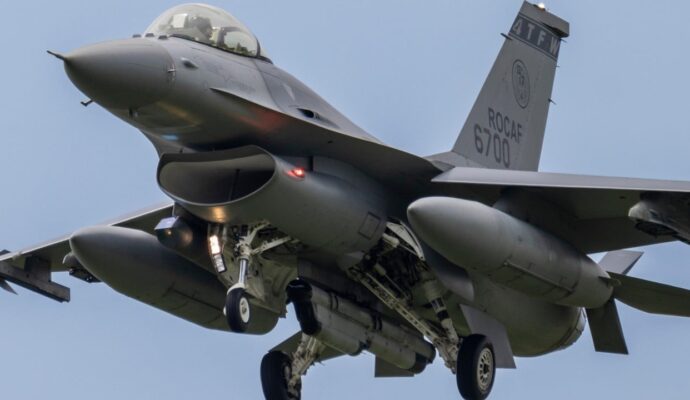
Anthony Albanese watched on from the opposition benches when Xi Jinping addressed a joint sitting of federal parliament back in 2014.
In Australia for the G20 summit, and hosted by Tony Abbott, China’s president told MPs he had visited the country five times over 30 years, spending time in every state and territory.
Xi said the friendship between Australia and China would be as “strong and everlasting” as Uluru and the Great Wall of China.
As he prepares to meet Xi later this month, Albanese may be forgiven for wishing the friendship and stability the Chinese leader talked about that day in Canberra had come to pass.
Both men’s stations have shifted dramatically in the intervening decade. Xi changed party rules to become China’s president for life, and Albanese, a leadership rival to Bill Shorten, has entered the pantheon of Labor greats, securing two election victories and the party’s biggest win since the second world war.
It has fallen to Albanese as prime minister to negotiate a newfound stability in the relationship with Beijing after an acrimonious period which has included a years-long trade and diplomatic deep freeze, lingering bad blood from the Covid-19 pandemic and persistent interference in Australian society.
Albanese and his foreign affairs minister, Penny Wong, have succeeded in returning things to a more even keel, promising the two governments will cooperate where they can and disagree where they must.
That has meant resisting some public criticism of China, or taking a more measured approach than the media and some commentators demand, including when Chinese warships circumnavigated the country earlier this year, running a live fire exercise that caused dozens of commercial flights to be rerouted.
Cooperation with disagreement is a formulation which the government might be privately retrofitting to Australia’s other most pressing international priority: managing Donald Trump.
Usually a rock solid partnership regardless of which party is in power in Washington or Canberra, Trump’s incredible restoration to the Oval Office has disrupted relations with Canberra. A mix of the Republican’s unconventional style and fractious events in the Middle East has meant even the straightforward task of locking in a meeting between the prime minister and the president has become one of the major political challenges since the government’s return to power.
Albanese needs to seek assurances from Trump on the future of the Aukus nuclear submarines deal, explain his position on America’s demands for Australia to spend 3.5% of GDP on defence and make the case for preferential treatment under the Trump tariff regime, but has been left hanging on when talks will actually take place.
For Labor, the problem is something between a scheduling snafu and an emerging foreign policy flashpoint. The Coalition describes it as a major failure, saying the government should have anticipated Trump’s win and laid better diplomatic groundwork.
The opposition is continuing to demand the prime minister go to the White House and meet with Trump, as if Albanese is somehow sitting at Canberra airport refusing to get on the plane. In reality, an invitation will only be issued when a time of mutual agreement can be secured.
after newsletter promotion
After her meeting with the US secretary of state, Marco Rubio, and their Quad counterparts in Washington this week, Wong confirmed the Americans are eager for a meeting to take place as soon as possible.
A September visit to the United Nations general assembly or the Quad leaders’ summit in India later in the year are the most likely timing windows, guaranteeing Albanese will hold his second round of face-to-face talks with Xi before he meets Trump for the first time.
Labor has been careful to keep its response to the tariffs in check in recent weeks.
Trump’s “Liberation Day” announcement turned into an unlikely positive for Albanese during the federal election campaign, and government sources say being included in the list of countries at the 10% baseline rate is as good as things are likely to get. Purported major deals with the United Kingdom and Vietnam might be more hype than substance and Labor won’t be the only government hoping Trump might cave on his 9 July deadline and extend the pause on most of the tariffs.
Albanese has described the tariffs as an act of economic self-harm, warning American consumers will pay the price for Trump’s inflexible belief in import duties. He will stress Australia has a trade surplus with the United States, even as he says the imposition of tariffs is not the act of a friend. Labor sources say privately the government won’t push for any major new deal that could undercut the 20-year-old US-Australia free trade agreement.
But, as with Xi – described this week by Simon Case, the former head of the UK’s civil service, as a “dictator” intent on causing conflict over Taiwan – careful criticism of Trump may not stand the test of time.
He is ramping up extra judicial deportations, going after perceived enemies in the media, abusing political rivals and the leaders of friendly nations, and cutting social programs including health insurance and food stamps to fund the so-called One Big Beautiful Bill. Now law, it is replete with tax cuts for the richest Americans and big corporations and will add trillions to national debt. No one should forget Trump tried to overturn a democratic election, goading his supporters to deadly violence as he attempted to cling to power.
If Trump uses the 30-day snap review of Aukus to pull out of the deal, even after Australia has sent about $800m to support the US defence industrial base, Albanese will have a major political crisis on his hands. Australia has structured its defence and foreign policy around the United States alliance for decades and any move by Trump towards his own isolationist instincts would be bad news for allies in the Indo-Pacific and good news for Xi.
For Albanese and Labor, cooperating with both Xi and Trump, while disagreeing when Australia must, might be the only good approach.


